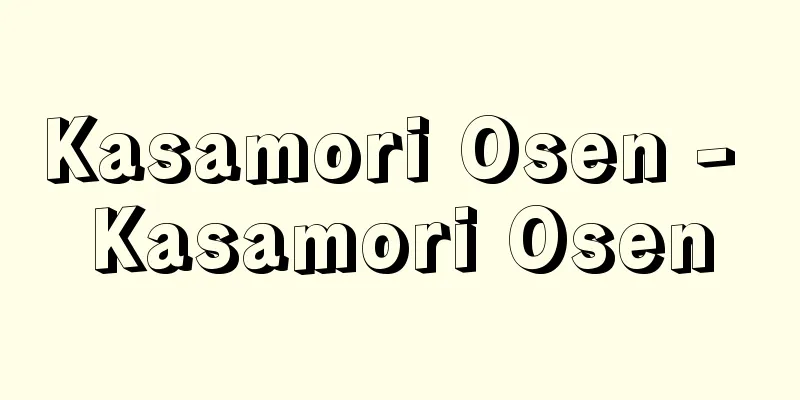Self-determination of nations

|
A political principle that each nation determines its own fate by its own will. It is also considered a human right. The right to self-determination was recognized as a fundamental human right by the United Nations General Assembly in 1950. Furthermore, the right to self-determination of the people was applied to colonies by the Declaration of the Granting of Independence to the Colonies in 1960, and was also stipulated in the International Covenant on Human Rights in 1966. Historically, the idea of political self-determination as a nation-state of a single ethnic group was seen in the nationalism of Italy and Germany in the 19th century after the French Revolution. From the late 19th century to the early 20th century, there was a debate among Marxists about class self-determination and ethnic self-determination, but the Soviet Union, under the influence of Lenin, adopted a federal system, only formally invoking the right to ethnic self-determination. After World War I, US President T.W. Wilson advocated self-determination of ethnic minorities within a nation, but this was to support the independence of Eastern European countries and the Baltic states, where the influence of Germany and the Soviet Union was expanding. After World War II, it became the ideology of anti-colonial and independence movements in Asia and Africa, leading to the independence of many countries. Based on this history, since the 1960s, movements calling for self-determination by minority groups have been born all over the world. Furthermore, since the collapse of the Cold War system in the late 1980s, this principle has been upheld during the Eastern European revolution, the unification of Germany, and the breakup of the Soviet Union and Yugoslavia. →Nationalism/Ethnic Group/Regionalism Source : Heibonsha Encyclopedia About MyPedia Information |
|
各民族が,みずからの意志によってその運命を決定するという政治原則。人権の一つとも考えられている。〈自決self-determination〉の権利は,1950年の国連総会で基本的人権として認められた。さらに1960年の植民地独立付与宣言によって〈人民peopleの自決〉の権利が植民地の独立にも適用され,1966年の国際人権規約にも規定された。歴史的には,フランス革命後の19世紀のイタリア,ドイツのナショナリズムに見られ,単一民族による国民国家としての政治的自決という考え方が生まれた。19世紀後半から20世紀初めにかけて,マルクス主義者の間で階級自決と民族自決をめぐって論争があったが,ソビエト連邦はレーニンの影響下に民族自決権を形式的にのみ援用して連邦制をとった。第1次大戦後には,米国大統領T.W.ウィルソンによって一国家における少数民族の自決が唱えられたが,これはドイツとソ連の影響が拡大しつつあった東欧諸国とバルト三国の独立を支援するものであった。第2次大戦後にはアジア・アフリカにおける反植民地・独立運動のイデオロギーとなり,各国の独立につながった。こうした歴史をふまえ,1960年代以降,世界各地で少数者集団による民族自決を掲げた運動が生まれた。また,1980年代末の冷戦体制の崩壊以降,東欧革命,ドイツ統一,ソビエト連邦およびユーゴスラビアの解体に際してもこの原則が掲げられた。→ナショナリズム/民族/リージョナリズム
出典 株式会社平凡社百科事典マイペディアについて 情報 |
Recommend
Kazanowashi - Kazanowashi
…The Philippine monkey eagle, Pithecophaga jeffer...
Bluebird - bluebird
A general term for birds in the genus Sialia, fam...
Izumidai - Izumidai
…In recent years, the species that has been activ...
Otsunentobo - Otsunentobo
An insect that belongs to the family Acanthodidae...
dvija
...The term took on the meaning of "status&q...
Fixed-term deposit with a specified maturity date
A one-year compound interest term deposit was intr...
Kaei Sandai-ki (The Three Generations of Flower Management)
Records of the Muromachi Shogunate. Three volumes...
Bikolano - Bikol tribe (English spelling)
A group of so-called lowland Christians in the Phi...
Arbogast (English spelling)
[raw]? [Died] September 8, 394. A Roman general of...
Aibiki - Aibiki
A translated novel by Futabatei Shimei, published ...
Pearl millet (Chinese: 葡萄)
An annual grass of the grass family native to Egyp...
Bill of sale - Bill of sale
〘 noun 〙 In the Edo period, a document was sent to...
common cold
… [Classification of colds] Cold syndrome include...
Aretas
…From the beginning of the 6th century, they rece...
Bataan Invasion - Bataan Invasion
Immediately after the outbreak of the Pacific War,...









